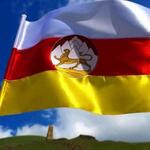May 29, 1992 - Independence Day of the Republic of South Ossetia. In the history of any state there is such a date - the main one. And the main national holiday of the country. For South Ossetians, the May day, which is quite recent by the standards of history, became a landmark day. Did the deputies of the first convocation of the Supreme Council realize that they were making history?
Then they, above all, responded to the challenge of time and tried to save their people from destruction. At the same time acting exclusively within the framework of the international legal framework.
The intellectual potential of the backbone of the deputy corps has become a powerful tool that has allowed us to lay the impeccable political and legal foundations of our statehood.
At the end of 1991, the Soviet Union collapsed, according to a decision in Belovezhskaya Pushcha, the leaders of the three republics, who redeemed the will of the peoples of the Union, manifested in a referendum in March 1991. South Ossetia, despite the military terror, voted at that referendum for the preservation of the Union. Georgia announced its withdrawal from the USSR to the Belovezhsk Accords. South Ossetia under the laws of the USSR had the right to secede from the GSSR and remain in the composition of the union state. She took advantage of this right.
After the collapse of the USSR, in January 1992, a referendum was held in South Ossetia, in which the people unanimously voted for independence from Georgia and the possibility of reunification with North Ossetia within the Russian Federation.
In May 1992, Georgia was a territory on the map of the former USSR within the boundaries defined for it by the Russian Empire and the USSR, which included South Ossetia and Abkhazia. Georgia was an entity that at the time was not recognized by any country in the world, or by any international organization. Thus, South Ossetia has not violated a single clause of international law, including the clause on “recognizing the territorial integrity of states”, which is in perpetual contradiction with the clause on “the right of people to self-determination”, which is also declared by international law. The state of Georgia did not exist, the territorial integrity of a single state was not violated, and the people’s right to self-determination was exercised.
Strong pressure was put on deputies of that historical first convocation. The republic was in a state of martial law; the decision was made under the gaps of almost all types of shells of that time. The very existence of the South Ossetians was under threat.
All responsibility for the fate of the country and the people assumed the Supreme Council, because then there was no executive power. In the Organ Hall of the Supreme Council building, not only deputies but also members of the public were present at the meeting, since many of the meetings were open. The hall was crowded. All those present greeted the reading of the Independence Act standing and applauded for a long time with a unanimous decision. Applause, according to the memories of those present, drowned out the sounds of shell explosions. After the adoption of the Independence Act, the Supreme Council of the RSO addressed, first of all, to the leadership of the Russian Federation, to all countries belonging to the United Nations, with a request to recognize independence.
Until August 26, 2008, when the Russian Federation recognized the Republic of South Ossetia, there were still years, bloody battles and losses, difficulties in surviving the post-war period and isolation, the creation of institutions of statehood, mistakes and frustration. Everything that cannot be avoided when a state is born. The state of Alanya is only at the very beginning. And forever, the day of May 29, 1992 and the Declaration of Independence are inscribed in its history.








